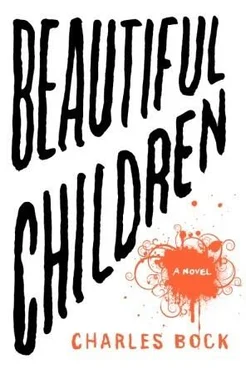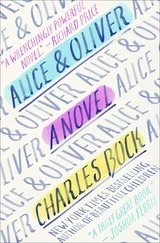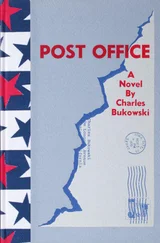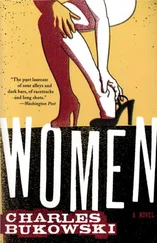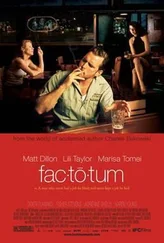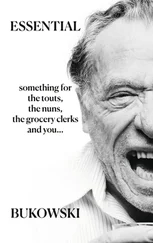The year Kenny turned fourteen, the fighting in his home reached a breaking point, and after a whole lot of fireworks, his dad moved out. Not long afterward, with much less ceremony, and a whole lot less screaming, a middle-aged woman appeared behind the front counter of the pawn shop. She was small, the woman, slight as a bird, with salt and pepper sprinkling unkempt bangs, and dog hair clinging noticeably to a coffee-stained blouse. She possessed the Jew's deeply set eyes, his sloped shoulders, and hard accent. Kenny's aunt asked what happened. “You want to interrogate me,” snapped the woman, “or you want to do some business?”
Follow-up visits revealed her to be perpetually nervous and defensive. More than once she threw a customer out of the store for reasons Kenny could not figure. He'd stay as far away from her as he could, and stare anywhere but at her, avoiding all contact. Whenever she acknowledged his existence and wanted to know how he was doing at school, Kenny, unable to comprehend her attempt at kindness, answered in scared one-word exclamations. His darting eyes glanced over the shop's subtle changes, overlooking the china dolls that had been placed inside showcases, the lilacs and potpourri next to the gun rack.
By the following spring, a painted portrait of the Jew wearing an unfamiliar silver toupee hung on the wall behind the front counter, near a framed proclamation, signed by Governor William Jefferson Clinton, which declared the Jew an official Arkansas Traveler. Kenny looked at the old document while his aunt explained how she usually kept her pawn ticket in her purse. “Wasn't until the bus was at Charleston, I realized I musta forgot.”
The woman muttered an undecipherable judgment. Opening a file cabinet, she withdrew a series of index cards, and then saw the initials. Untold incarnations of the same two letters, variations on a theme: the strong, illegible script of a confident man with things to do; the distracted scribbles that landed halfway between the lined columns; the weak scratches of a cheap plastic ballpoint running out of ink; the luxurious thickness of in-delible black marker. Always capital letters. Always slanted to the right. As the pair of initials descended the card's final columns, each of the Jew's signatures appeared progressively gnarled, further and further cramped.
“Oh, Daddy.” The woman's voice was halting, hesitant. “All those years. Back and forth. The same nickels. The same junk.”
“I know it's not the best stuff,” said Kenny's aunt. “But it helps me get through.”
From the back room a phone stopped ringing. The Jew's daughter's eyes had dilated and were wide as an ocean. They were soft and moist and she glanced back down at the ledger, her finger pressing the edge of the page.
“You have a criminal record?”
“Hmh?”
“I asked if you have a record.”
“No. No record.”
“You a drunk?”
“Not a drunk, no ma'am.”
Again the Jew's Daughter looked down at the column. Again back at Kenny's aunt.
“Maybe you need a job?”
This was how the second seat appeared behind the counter. Mondays through Saturdays, eight A.M. to six P.M., Kenny's aunt rocked back and forth with a loaded Beretta in her lap. She moved in and out of the large walk-in safe, helping to carry heavy televisions and stereos into the back room. Whenever there were too many customers for the Jew's Daughter to handle alone, his aunt showed jewelry, answered questions, and simply waited people out. Whenever a gypsy family flooded the store — their diapered children crawling all over the floor, the adults spreading out, hovering over different showcases, demanding to see this ring, that bracelet, every damn one of them searching for the perfect opportunity to make a pendant disappear — whenever this happened, Kenny's aunt guarded the door, kept an eye wherever the Jew's Daughter could not look. She polished jewelry and made coffee, ran around the corner to get a new carton of 2 percent, and watched the clock, making it her business to beat the rush of dealers to the Horseshoe snack bar for lunchtime sandwiches. If a pawn ticket envelope went missing, Kenny's aunt helped search, assuring the Jew's Daughter they'd find it, the envelope had to be there. If the afternoon was empty of customers, his aunt provided a running commentary on the old movie that the two women watched on a television with wavy reception. Sometimes the Jew's Daughter would vent about her children, complaining that they did not understand the sacrifices she was making every day on their behalf. Kenny's aunt would answer, calmly, sincerely, that she was sure the Daughter's children were more grateful than the Daughter could ever know. Whatever kept the Jew's Daughter from feeling too much pressure, Kenny's aunt tried to provide. Whatever talked her down off that day's ledge.
It was no small order. The county had deregulated pawn licenses, and hock shops were popping up in just about every residential neighborhood, tripling inside the city limits alone. This was in addition to the bank and credit card machines that could be found inside any casino. And a burgeoning industry where, in exchange for a cash advance, workers could sign over paychecks they hadn't yet earned. “It changes who comes in,” Kenny's aunt would explain, on their long bus rides home. Venting, bitter with exhaustion, she'd repeat what the Jew's Daughter had told her. “We got less people coming downtown, first of all. And two, less people using pawn shops. It adds up, you know?”
Kenny could not help but feel the weight of the past as he eased the FBI-mobile out of Main's final bend. Presently, flimsy motels advertised hourly rates and bail bonds shacks touted round-the-clock service. Adult bookstores — their windows black with shoe polish — came and went, followed by liquor places with iron bars over their doors.
As the thoroughfare opened, flat fields of dormant automobiles fanned out, a new cluster of towers breaking into the horizon. A multimillion-dollar dome now hovered over them, covering Fremont Street in the latest attempt to draw crowds. Like everything else, though, this gimmick wasn't working. Downtown mostly attracted nickel-and-dimers these days: busloads of Asian tourists in from California for weekend binges, bargain hunters who finagled cut-rate packages from floundering Internet travel agencies.
Kenny took a long sip, the flat soda swishing warmly through his mouth, the cardboard cup saturated, flimsy in his free hand.
Behind a clothing store that sold dealer slacks to casino workers, a crusty old man had a special agreement with him: if Kenny parked the Reliant there for more than ten minutes, the old man agreed to begin charging. Climbing out of the FBImobile, Kenny walked past the small booth where the guy sat, listening to the radio. The guy ignored him. Kenny returned the favor.
Dusk was eking across the horizon in pale purple swaths. Music had just started from Fremont Street, signifying the commencement of the animated movie along the dome. For an instant Kenny remembered the deep, throaty voice: “ Howdy, partner. Welcome to downtown Las Vegas.” It had been gone for years now, but he resented its absence. He couldn't exactly say why.
He started down the street. From a block away, painted red letters were visible on the side of a white brick building: 6 % interest. lowest in town.
Sometimes when the afternoon was dead, they closed early. If the grating was already down in front of the shop, Kenny knew to duck between the beef jerky store and the place where they sold Nazi memorabilia. Inevitably, inside the liquor mart's front entrance, his aunt would be on a small stool, sagging like a sack of potatoes; she'd be feeding nickels into her lucky slot machine, her arm heavy and listless, her eyes bleary, red at the corners. And Kenny was more than fine with this. If he had to pick up the old bag, he'd rather pick her up in the liquor mart.
Читать дальше
